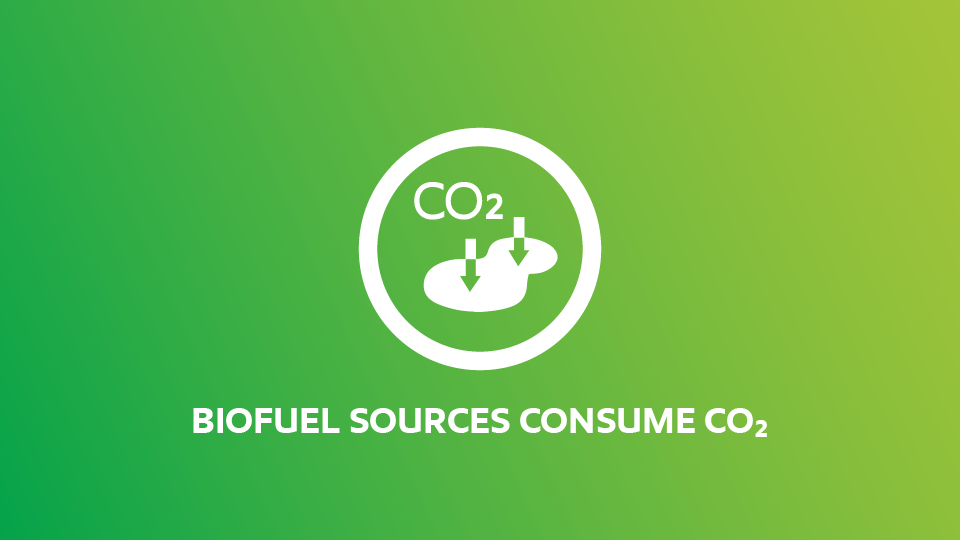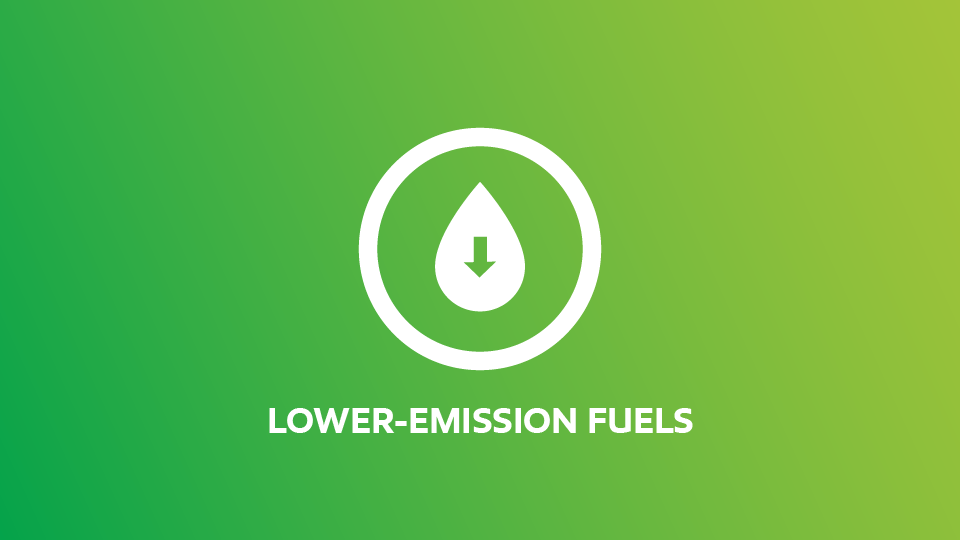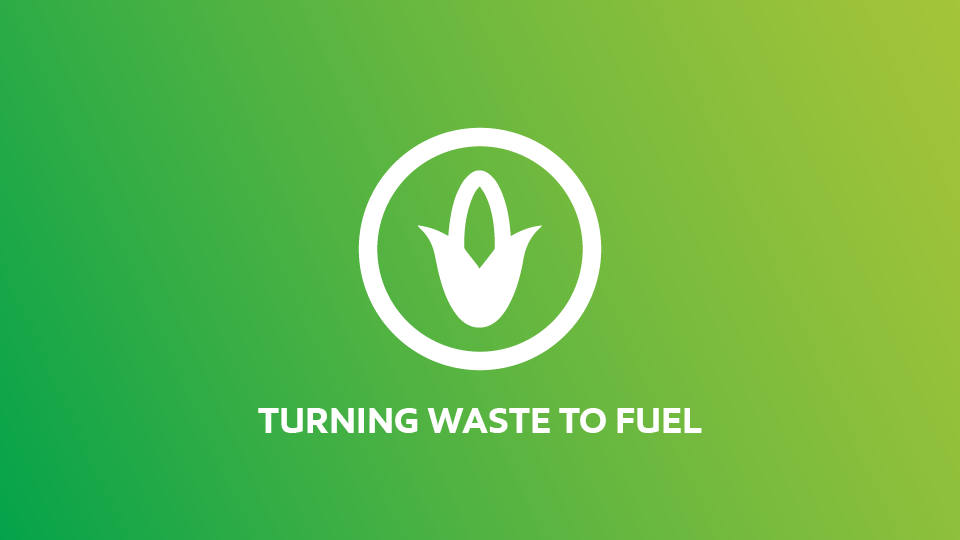Biofuels used today are largely derived from agricultural crops. Sugar cane and corn are used to make ethanol, while biodiesel is made from vegetable oils like soy.
Biofuels made from algae and cellulosic biomass (abundant plant waste such as corn stalks and wheat straw), however, could provide a renewable fuel source that does not compete with supplies of food or fresh water. These advanced biofuels have the potential to be produced on a large scale, and are derived from sources that consume CO2.
Could advanced biofuels be tomorrow’s lower-emission transportation fuel? From production to combustion, here are seven reasons why ExxonMobil thinks the answer could be yes:
Biofuel sources consume CO2: Like all plants, the sources of cellulosic biomass consume CO2 from the atmosphere as they grow. Algae also consume CO2 to grow, using the same process of photosynthesis.
Lower-emission fuels: On a life cycle basis, algae and cellulosic biofuels emit about half as many greenhouse gases as petroleum-derived fuel.
High yield: Based on current technology, an acre of algae could yield more than 7,570 litres of fuel. Compare that to 2,460 litres per acre for palm oil and 190 litres for soybean oil(1). We’re working to make algae even more productive in the future.
Turning waste to fuel: Cellulosic biomass uses waste plant materials, such as crop residue like corn stalks, sawdust and other wood waste.
Year-round harvests: Algae can be harvested repeatedly throughout the year unlike other feedstocks, such as corn, which are harvested only once a year.
Food friendly: Algae can be cultivated on land unsuitable for other purposes, with water that can’t be used for food production. Cellulosic biomass can be derived from agricultural waste or woody biomass, which also do not compete with food.
Engine ready: Fuel derived from algae and cellulosic material can be pumped into existing diesel automobiles without making major changes to car engines and infrastructure.
Follow these links to find out more about the research we are doing into algae biofuel with Synthetic Genomics Inc., and cellulosic biofuel with Clariant and Genomatica.
Sources:










